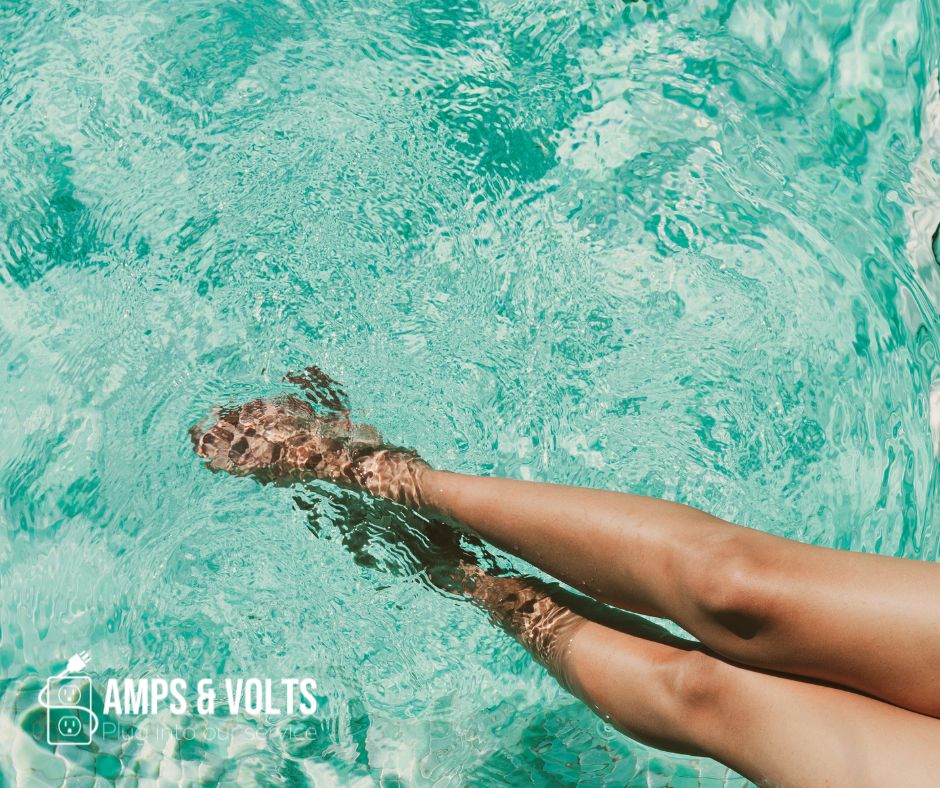Electrical Safety Around Pools
As the temperature rises, people tend to cool off by taking a dip in the pool. You should take some precautions to ensure that your pool is safe and secure for everyone to enjoy.
One of the main risks around pools is electricity. Water and electricity are a dangerous combination, and pool electrical safety is crucial not just during summers but all year round. A pool has several electrical components that require proper installation and regular inspections to avoid hazards. Faulty underwater lighting, faulty electrical installations, old wiring, lack of GFCI receptacles, extension cords, and electrical appliances can cause swimming pool electric shock, electrocution, and drowning.
To make sure that your pool is safe from electrical hazards, there are some essential electric safety rules you should follow, and you should also comply with the code requirements recommended by the National Electric Code (NEC). Here are a few things to keep in mind:
• Hire a licensed electrician for proper wiring and installation of electrical components for a new swimming pool. Schedule regular inspections of motor, pumps, heating equipment, and lights, and ensure repairs or replacements of faulty parts to ensure the swimming pool is electrically safe. Consider making the required wiring and other upgrades mandated by the local codes.
• Always use battery-operated appliances, devices, and equipment instead of a cord connecting them.
• Install GFCI-protected receptacles for all pool equipment.
• Receptacles for general use that are not GFCI-protected should be located at least 20 feet from the pool. For GFCI-protected, the distance should be no closer than 6 feet away.
• NEC recommends having at least one GFCI-protected outlet between 6 and 20 feet from the pool’s edge for in-ground pools.
• GFCI protection is a must for the electrical equipment used by the pool and the outdoor outlets to avoid injuries from electric shock. Regularly check them for proper operation.
• Turn the power off during an emergency.
• Do not touch electrical devices with wet hands.
• Get the swimming pool wiring inspected annually by an electrician.
• Never ignore signs like cracked, flickering, or buzzing lights, damaged wire casings, and mold or rust around electrical components.
It's essential to pay attention to electrical safety around swimming pools to protect swimmers from electrical hazards and ensure a stress-free and safe swimming experience.
If you have any issues with electrical around your pool or hot tub call Amps & Volts Electric at 219-462-FUSE (3873)


